15 Super Spices to Boost Your Health and Spice Up Your Cooking
Spices do more than add flavor to your food—they can also be powerful tools for boosting your health. Packed with antioxidants, anti-inflammatory compounds, and essential nutrients, these spices can help improve digestion, reduce inflammation, and even protect against certain diseases. Adding these spices to your meals can have a significant impact, regardless of your cooking skill level.
Turmeric
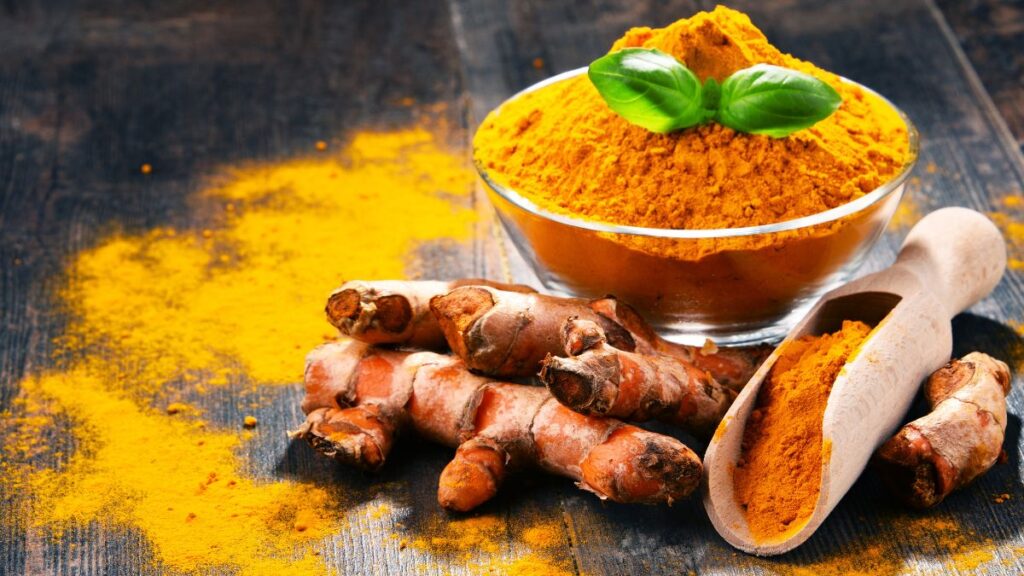
Turmeric is known for its vibrant yellow color and earthy flavor, often used in curry dishes. The spice contains curcumin, a powerful anti-inflammatory compound that has been shown to reduce the risk of chronic diseases.
It may also support brain health and improve memory function. Adding turmeric to soups, rice dishes, or smoothies can give them a unique flavor boost while offering health benefits.
It’s also a great spice to mix with warm milk for a calming drink. Just make sure to pair it with black pepper to help your body absorb curcumin more effectively.
Ginger
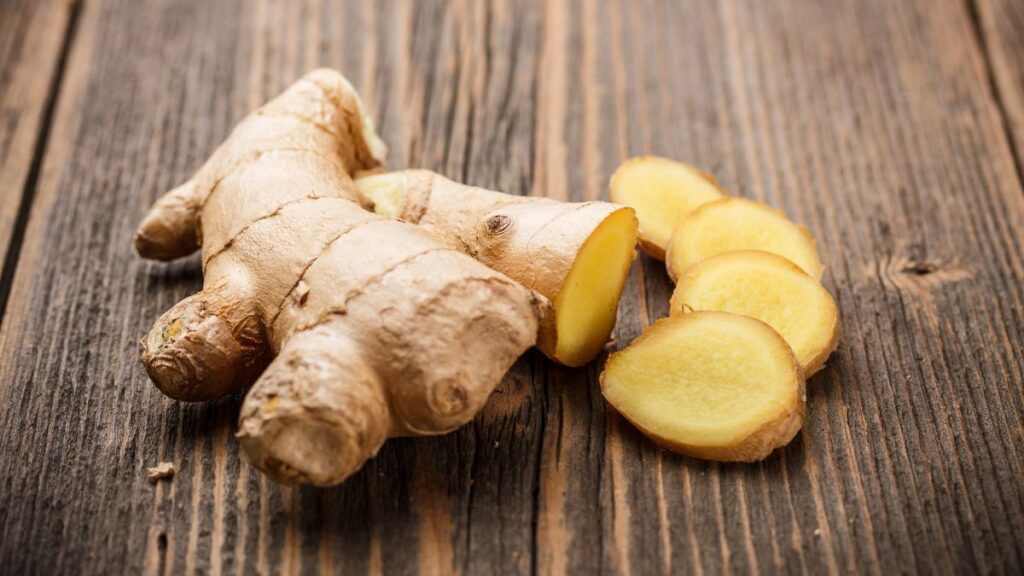
Ginger is a warming spice that’s famous for its ability to calm an upset stomach and aid digestion. It’s also packed with antioxidants that help fight inflammation and improve heart health.
Fresh or dried, ginger can be added to tea, stir-fries, or baked goods to add a zesty kick to your meals. Some studies suggest ginger can help reduce muscle soreness after exercise, making it a great spice for active individuals.
If you feel a cold coming on, ginger tea is a great remedy to soothe symptoms. Its spicy-sweet flavor also makes it a favorite in Asian cuisines.
Cinnamon

Cinnamon is a sweet and warming spice that makes your food taste better and helps regulate blood sugar levels. It’s particularly helpful for people with type 2 diabetes as it improves insulin sensitivity.
For a flavorful boost, you can sprinkle cinnamon on oatmeal, smoothies, or even coffee. Its antioxidant properties help fight free radicals, which can lower your risk of chronic diseases.
Cinnamon also has antimicrobial properties, making it useful for protecting against infections. Plus, its delicious aroma makes any dish feel more comforting.
Cayenne Pepper
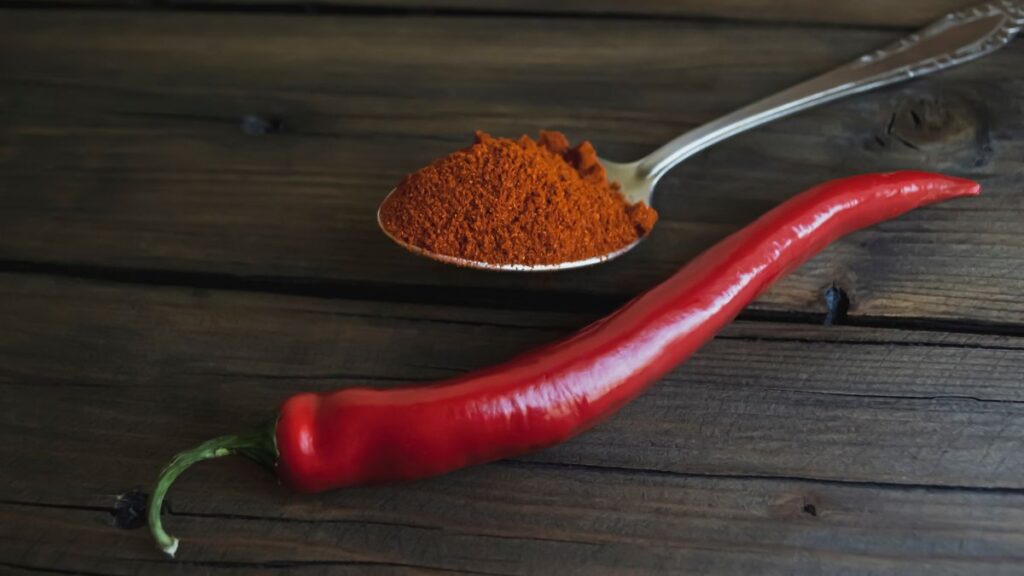
Cayenne pepper adds heat to food, but it also has impressive health benefits. The active compound in cayenne, capsaicin, helps boost metabolism and promote fat burning.
Cayenne pepper can be added to soups, stews, or marinades for a spicy kick and may also reduce appetite, making it easier to manage weight.
Additionally, it can help improve digestion and reduce the risk of ulcers. For those who enjoy spicy foods, cayenne pepper is a great way to add flavor while supporting your health goals.
Garlic
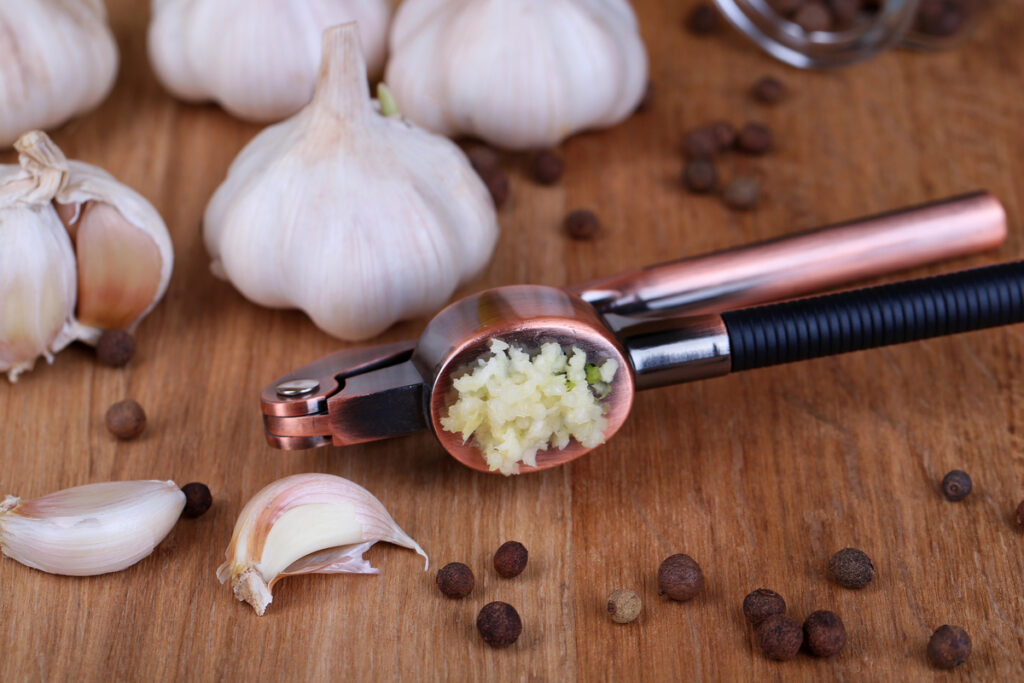
Garlic is a versatile spice that enhances the flavor of almost any dish while providing significant health benefits. It contains compounds like allicin, which have been shown to reduce blood pressure and improve heart health.
Garlic can also boost the immune system, making fighting off colds and infections easier. It can be used in sauces, stir-fries, or salad dressings to add a savory, pungent flavor.
Raw garlic may offer the most health benefits, but even cooked garlic can still contribute to better health. It’s a staple in many cuisines, from Italian to Asian dishes.
Black Pepper
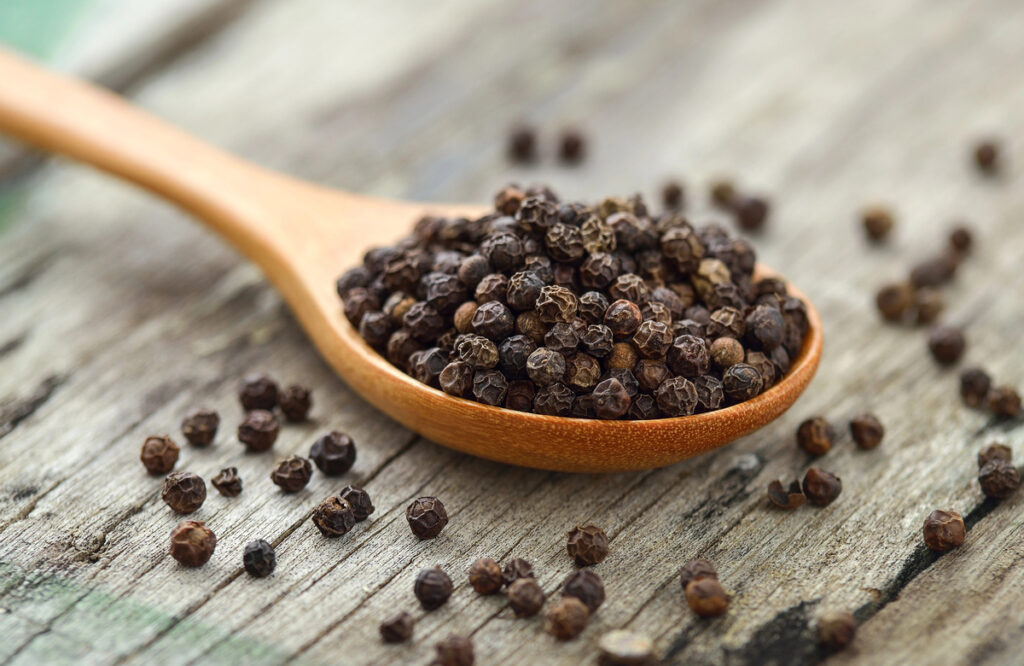
Black pepper is more than just a table seasoning—it’s known as the “king of spices” for its powerful health benefits. It contains piperine, a compound that enhances nutrient absorption and may help improve brain function.
Black pepper also has anti-inflammatory properties, which can reduce joint pain and improve digestion. You can sprinkle black pepper on almost any dish, from salads to meats.
It pairs well with turmeric, boosting the absorption of curcumin for added health benefits. Its spicy, earthy flavor makes it a must-have in every kitchen.
Cloves
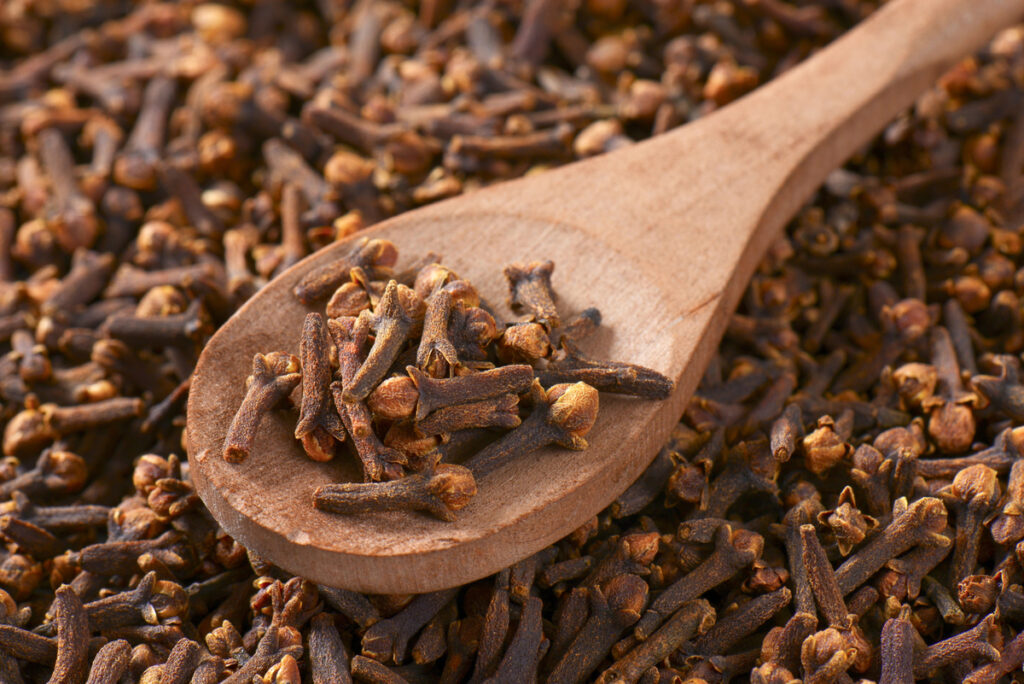
Cloves are small but mighty, packed with antioxidants that protect cells from damage. Their antibacterial properties make them particularly useful for improving oral health.
Clove oil is often used to relieve toothaches, but the spice itself can also help improve digestion and reduce inflammation. Add cloves to baked goods, teas, or stews for a warm, sweet-spicy flavor.
They can also help improve liver health by protecting it from oxidative stress. Cloves are an excellent choice if you’re looking for a spice with both flavor and health benefits.
Cardamom
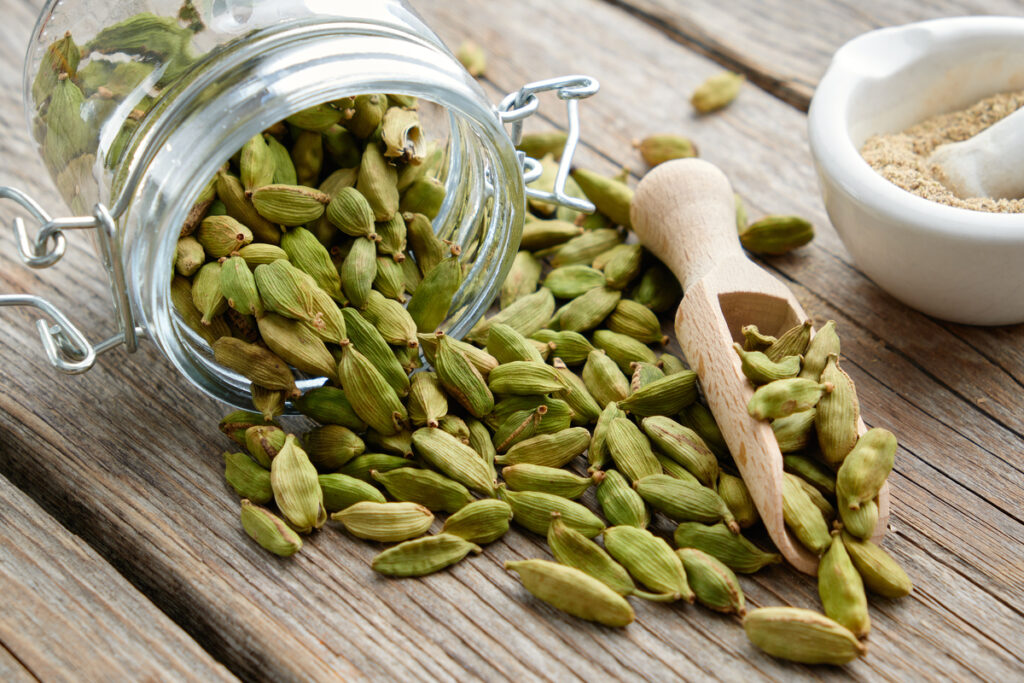
Cardamom is a fragrant spice often used in Indian and Middle Eastern dishes. It has been traditionally used to aid digestion, reduce nausea, and combat bad breath. Cardamom is also rich in antioxidants and can help lower blood pressure.
Cardamom adds a sweet, aromatic flavor to coffee, tea, or baked goods. It’s also a great spice for balancing sweet and savory flavors, making it versatile in cooking. Try adding it to your rice dishes or curries for a unique twist.
Nutmeg
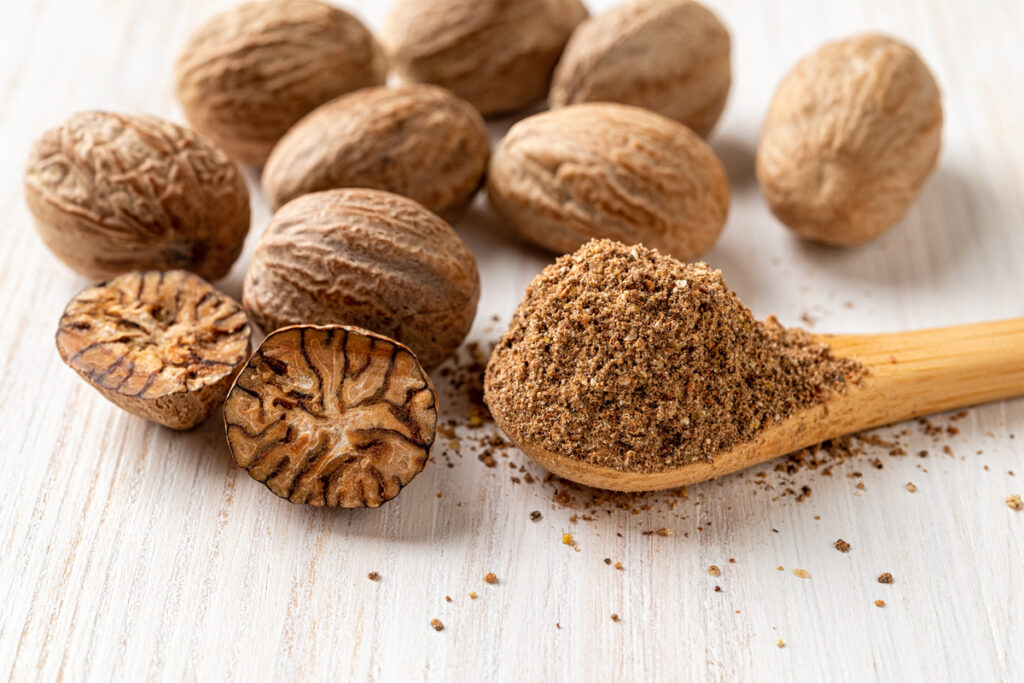
Nutmeg is a sweet, warming spice that pairs well with desserts and savory dishes alike. It contains compounds that promote relaxation, making it useful for improving sleep quality.
Nutmeg also has anti-inflammatory and antioxidant properties that support brain and heart health. For a rich, earthy flavor, you can grate fresh nutmeg into soups, sauces, or desserts.
However, be mindful not to use too much, as large amounts of nutmeg can be toxic. A pinch of nutmeg can go a long way in both flavor and health benefits.
Saffron
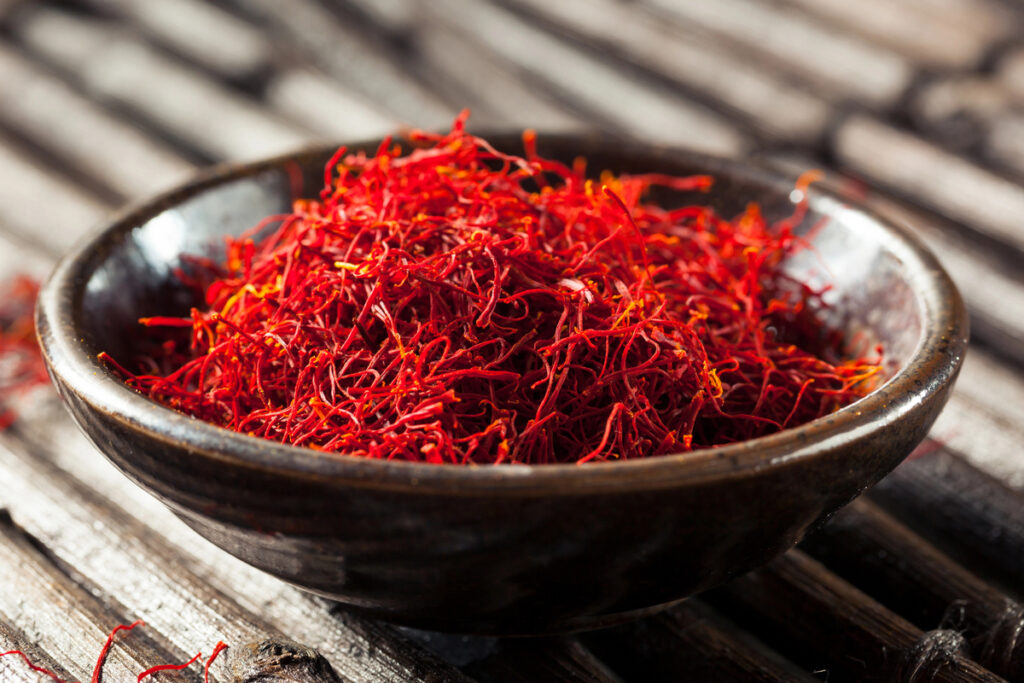
Saffron is one of the most expensive spices in the world, but it’s also one of the most beneficial. It has been shown to improve mood and reduce symptoms of depression, making it a natural mood booster.
Saffron also contains antioxidants that protect the brain and may improve memory. A small pinch of saffron can be added to rice, soups, or teas for a rich, golden color and a distinct floral flavor.
It may also help with PMS symptoms, making it a popular spice for women’s health. Despite its high cost, a little saffron goes a long way.
Fennel Seeds
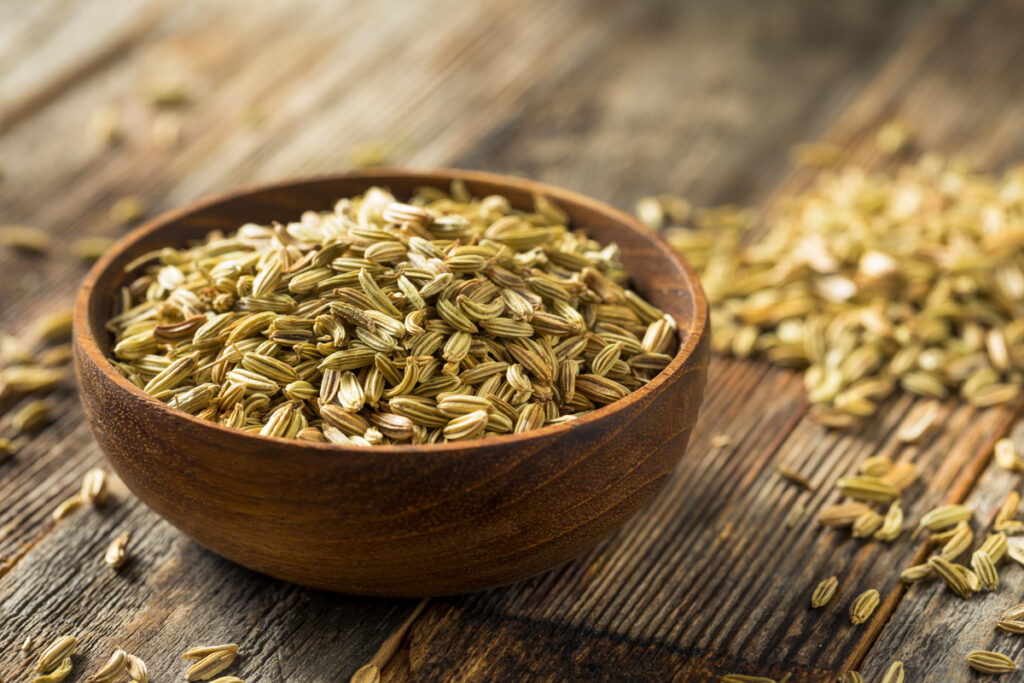
Fennel seeds have a sweet, licorice-like flavor and are known for their digestive benefits. They can help relieve bloating, indigestion, and gas, making them a popular after-meal spice. Fennel seeds are also rich in fiber and antioxidants, supporting overall health.
Fennel seeds can be chewed after a meal or added to baked goods, curries, or salads. In Indian cuisine, they are often used to flavor spice blends like garam masala. Their unique taste and health benefits make fennel seeds a great addition to your spice cabinet.
Coriander
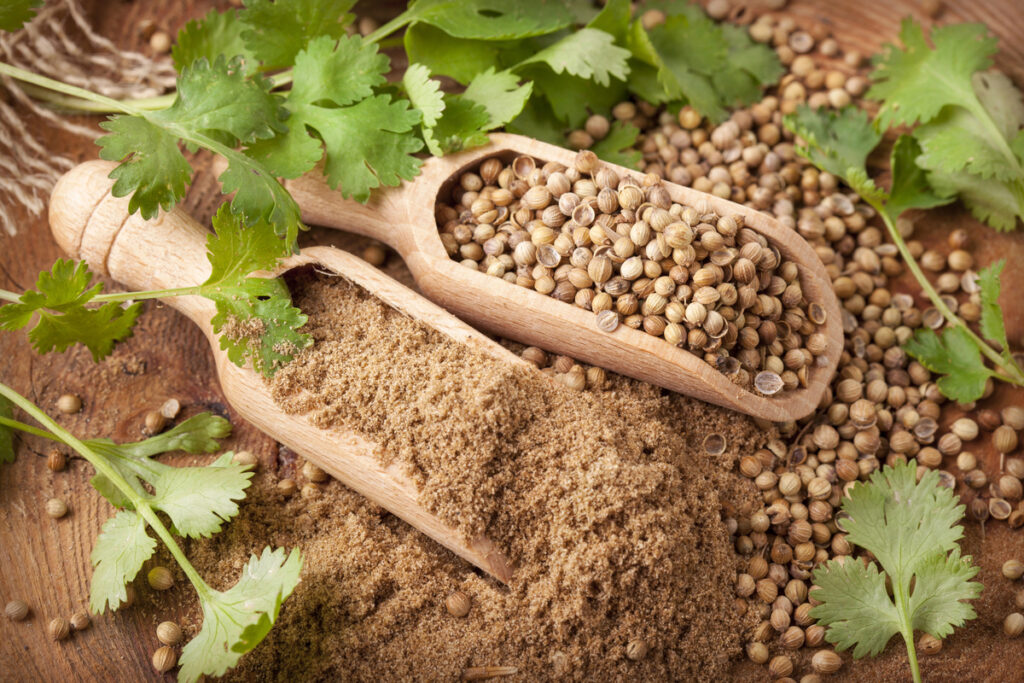
Coriander is a citrusy, slightly sweet spice made from the seeds of the cilantro plant. It’s rich in antioxidants and has been shown to help lower cholesterol levels and improve heart health. Coriander also supports digestion and can reduce bloating and gas.
Ground coriander adds a bright, fresh flavor to curries, soups, and marinades. It’s often paired with cumin in spice blends, creating a balanced flavor in many dishes. Whether you’re cooking meat, vegetables, or grains, coriander adds a subtle but impactful taste.
Cumin
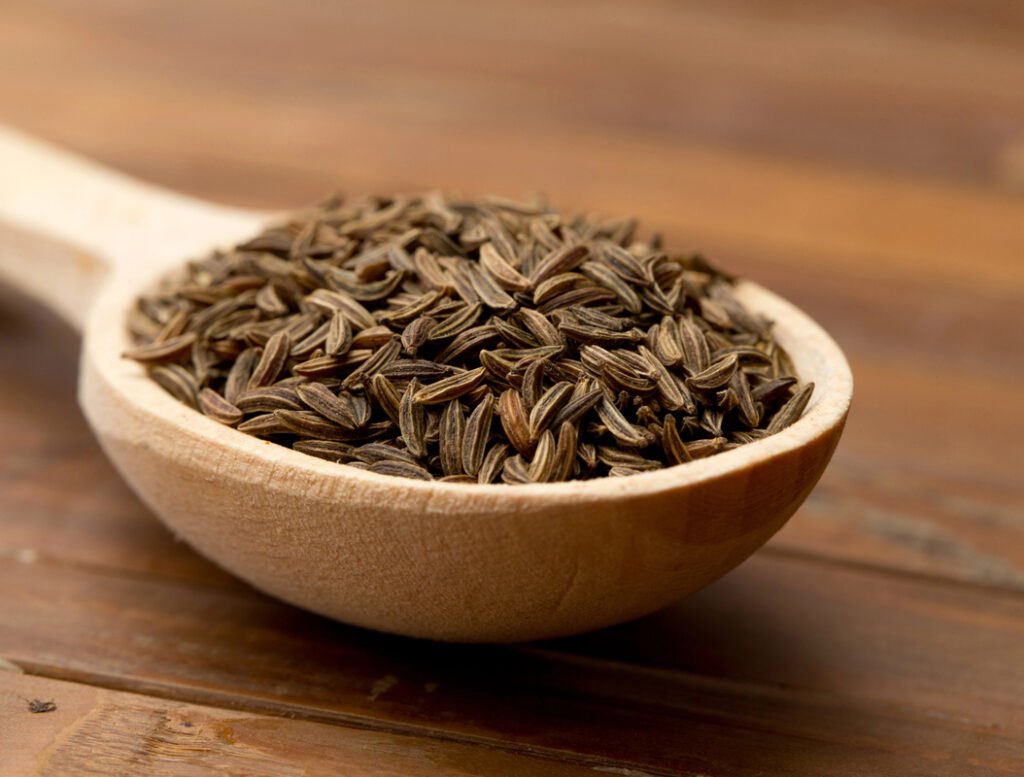
Cumin is a staple spice in many cuisines and is known for its earthy, nutty flavor. It’s rich in iron, making it beneficial for boosting energy levels and supporting immune function. Cumin has also been shown to aid digestion and may help with weight loss. You can use cumin in everything from chili to curries or sprinkle it on roasted vegetables for extra flavor.
It pairs well with other spices like coriander and turmeric, creating a balanced taste in dishes. Adding cumin to your meals enhances flavor and supports overall health.
Fenugreek
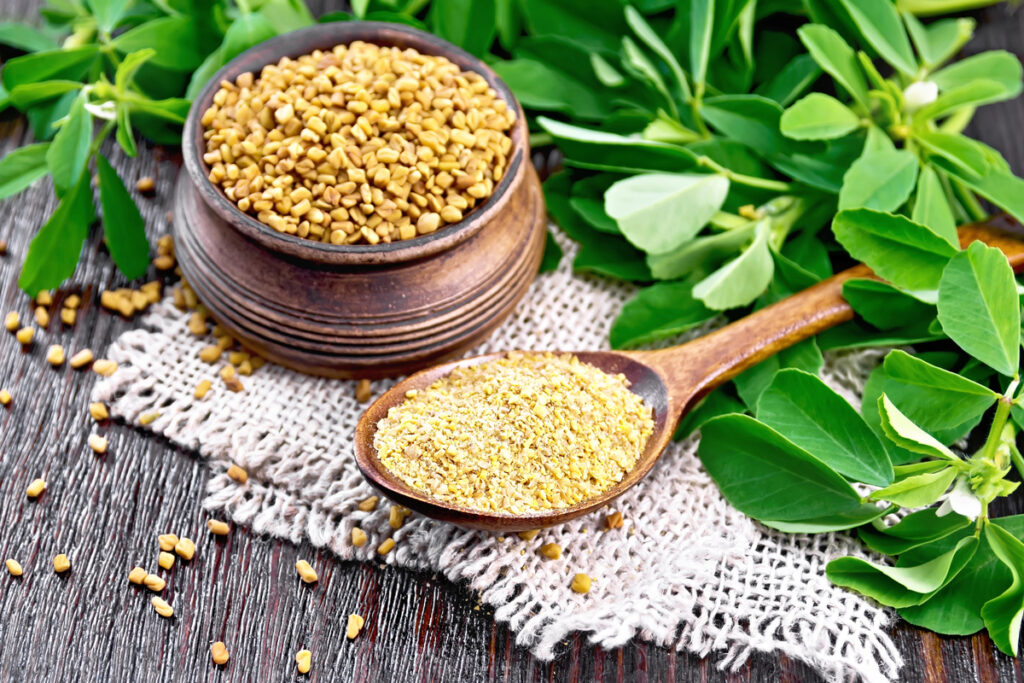
Fenugreek has a slightly bitter, nutty flavor and is commonly used in Indian and Middle Eastern cooking. It’s known for its ability to lower blood sugar levels and improve insulin sensitivity, making it beneficial for people with diabetes.
Fenugreek also helps support lactation in breastfeeding mothers. For a unique flavor, you can use fenugreek seeds in curries, soups, or even salads. The spice also has anti-inflammatory properties that can reduce pain and swelling in the body. Fenugreek is an excellent option if you’re looking for a health-boosting spice with a distinct flavor.
Mustard Seeds
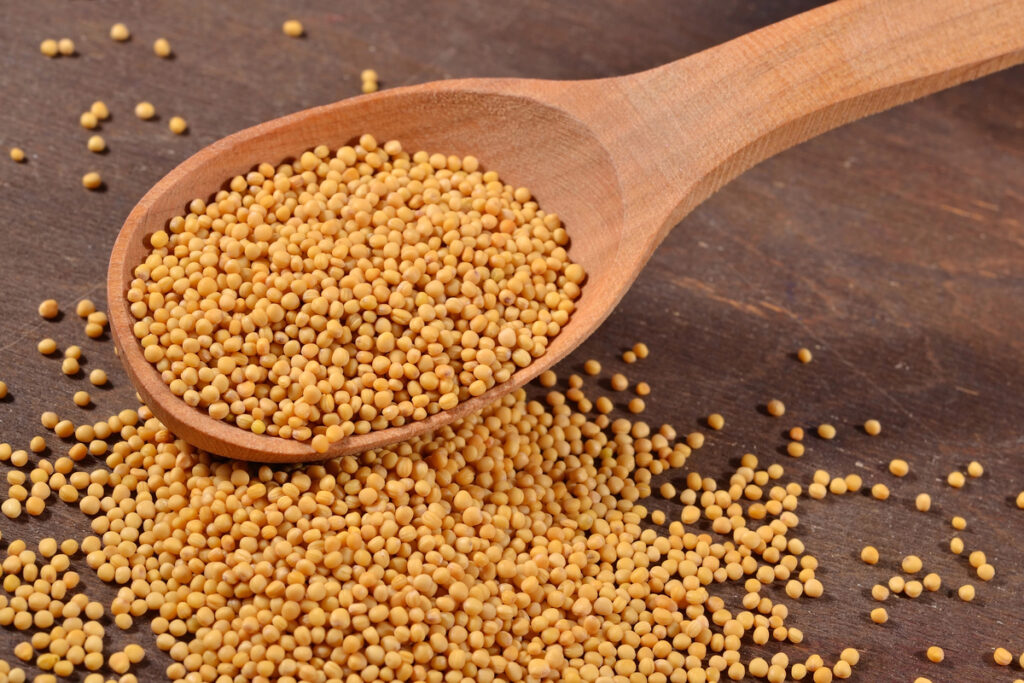
Mustard seeds may be small, but they’re packed with health benefits. They’re rich in antioxidants and contain compounds that can protect against certain types of cancer. Mustard seeds also have anti-inflammatory properties, making them helpful for reducing joint pain and improving heart health.
Mustard seeds are a must-have in any kitchen. They can be used in spice blends, salad dressings, or marinades for a tangy, spicy flavor. In Indian cooking, mustard seeds are often tempered in oil to release their flavor before being added to dishes. Their versatility and health benefits make them a must-have.
5 Pizza Recipes That Will Transcend You Into Cheesy Heaven

Pizza is a universal love that comes in various styles with countless topping options. From traditional pepperoni to keto options, this list has a favorite pizza recipe for everyone. Enjoy!
15 Pizza Recipes That Will Transcend You Into Cheesy Heaven
15 Innocent-Looking Vegetables That Are Junk Food in Disguise

When we think of vegetables, we often imagine healthy, nutrient-rich foods that benefit our bodies. However, not all vegetables are as healthy as they seem. Some innocent-looking vegetables can become junk food when prepared or served in unhealthy ways.
15 Innocent-Looking Vegetables That Are Junk Food in Disguise







